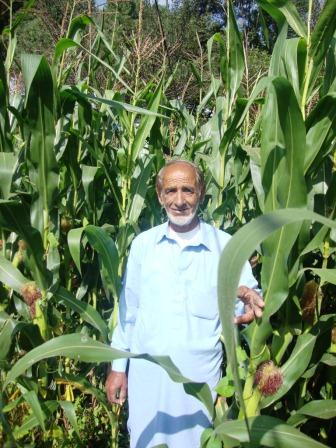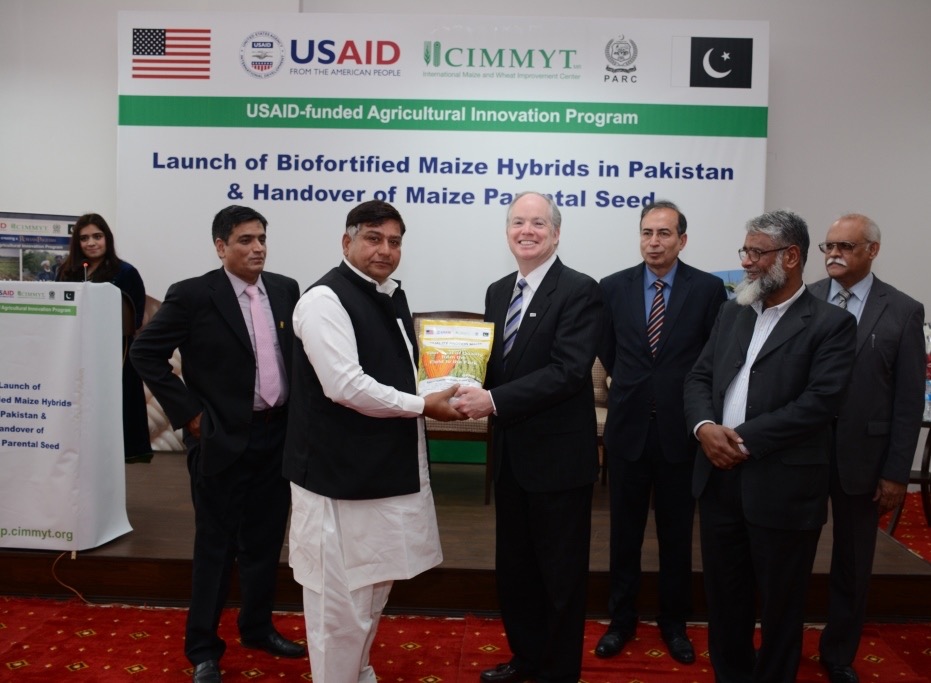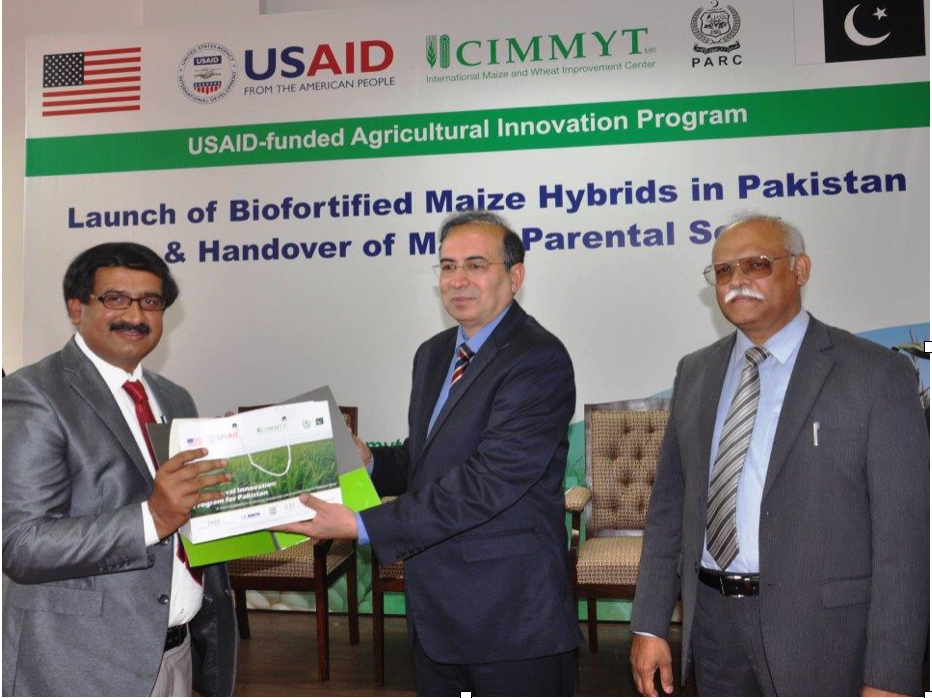
ISLAMABAD – The maize sector in Pakistan is benefiting from an upsurge in investments leading to new varieties from the International Maize and Wheat Improvement Center (CIMMYT) that have the potential to increase production, enhance nutrition and strengthen national industry.
Maize is the third most important cereal crop in Pakistan, which at a production rate of four tons per hectare, has one of the highest national yields in South Asia. Maize productivity in Pakistan has increased almost 75 percent from levels in the early 1990s due to the adoption and expansion of hybrid maize varieties. The crop is cultivated both in spring and autumn seasons and grows in all provinces throughout the country.
However, the lack of a strong national seed system has caused Pakistan to import more than 85 percent of its hybrid maize seed at a cost averaged about $50 million annually since 2011. When coupled with other factors including a limited source of seed providers and non-relaxation of duties on imported seed, this causes the unit price of hybrid maize seed to be the most expensive in South Asia.
PROJECT BOOSTS SEED
A project launched in 2013, CIMMYT’s Agricultural Innovation Program (AIP) funded by the U.S. Agency for International Development (USAID), led to a large-scale evaluation of maize varieties, which have since resulted in more than 1,000 diverse genotypes tested for favorable traits across Pakistan. Currently, 20 public- and private-sector companies are partnering with CIMMYT to test new varieties and deploy locally-adapted products.
In just two years since the launch of this initiative, more than 80 CIMMYT-derived hybrids and open pollinated varieties of maize have been identified and adapted to diverse ecologies in Pakistan. In the first phase, CIMMYT allocated 49 maize products for registration, commercial release, further seed scale-up and delivery in the target geographies in Pakistan. This maize germplasm was sourced from CIMMYT’s regional maize breeding hubs mainly from Colombia, Mexico and Zimbabwe. With the help of national partners, these improved varieties are being put in the hands smallholder farmers throughout the country.
Seed businesses in Pakistan now have the leverage to run a competitive domestic market for maize seed, thanks to these new varieties. Diverse new lines are also more nutritious, mature earlier and are more tolerant to drought. They can also be delivered at an affordable price which is a huge step forward compared to the limited options smallholder farmers had before AIP started.
Biofortification, or the enhancement of the nutritional value of a crop, has been a cornerstone of CIMMYT’s work in developing improved varieties. Quality Protein Maize (QPM) was the first new hybrid product to reach farmers in Pakistan. Demonstration seeds from the first two biofortified maize hybrids in Pakistan were officially distributed to farmers this February by the National Agricultural Research Center (NARC), one of the national partners to AIP. The two QPM hybrids, originally from CIMMYT-Colombia, will reach about 300 farmers this season and further distribution is expected by 2017.
“We know how precious (CIMMYT’s) parental seeds are,” said Muhammad Hashim Popalzai from Pakistan’s Ministry of National Food Secuirity and Research. “At times it will take up to eight years to develop inbred lines and another 3-4 years to constitute hybrid seeds, however, we are getting them easily under the AIP program.”
Although developing new seeds takes time, the benefits could make a huge contribution to Pakistan’s economy, health and livelihoods for farmers across the country.
“These parental seeds will help us to produce the seed locally,” said Faiysal Hayat, deputy manager of seed company Jullundur Private Ltd., adding that they will also “enable us to provide quality seed at an affordable price to farmers.”
In reviewing the progress of AIP maize activities, Abdu Rahman Beshir, CIMMYT’s maize improvement and seed systems specialist said: “The overwhelming interest and collaborations from public-private stakeholders of Pakistan’s maize sector are the main thrust for CIMMYT’s maize varietal deployment drive in Pakistan.”
Subsequent activities in quality seed production and enhanced product positioning will further reinforce the encouraging gains of AIP which aims to have a vibrant maize seed system in Pakistan, according to Beshir.


 Capacity development
Capacity development 
